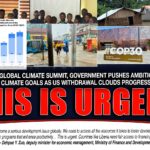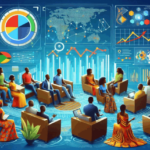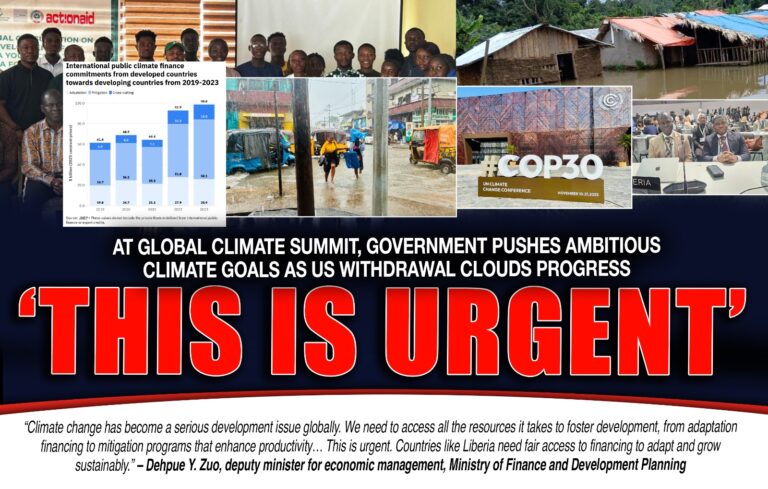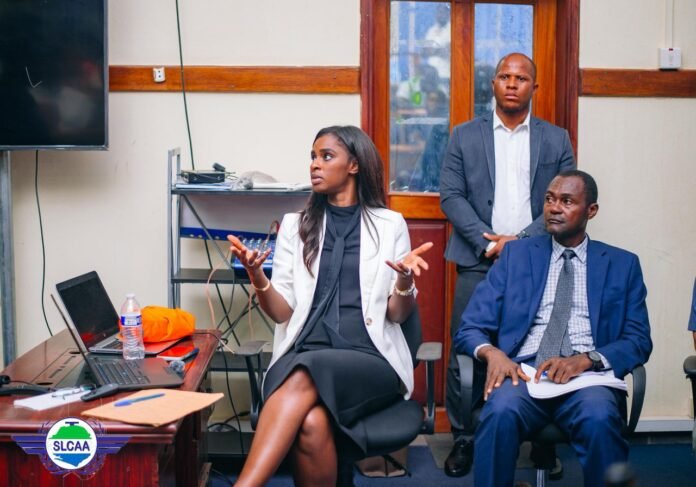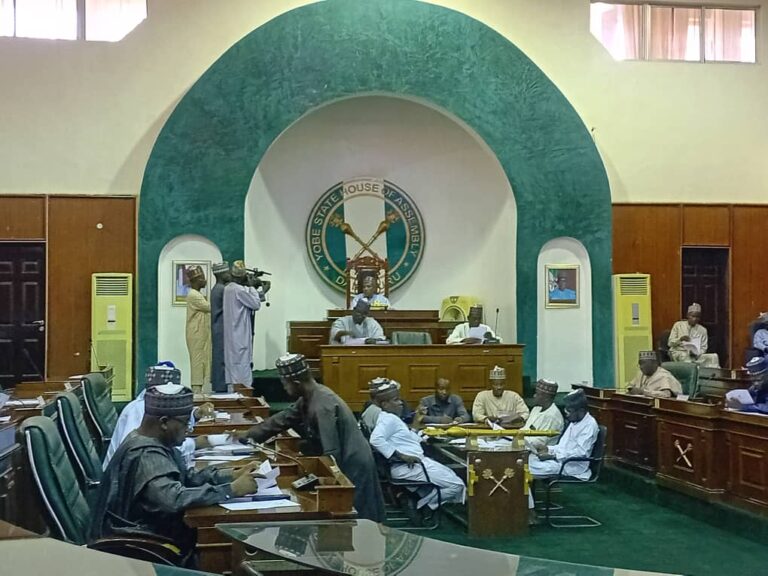Do Human Beings Deserve to Sacrifice Their Lives for Their Cause? A Case Study of the Late Rt. Hon. Raila Amolo Odinga, Former Prime Minister of Kenya, with Comparative Reflections from South Sudan
By Michael Mading Akueth
Date of Submission: November 12, 2025
Email: [[email protected]]
Cellphone+211922777044
@2025
Abstract:
This paper examines the philosophical, historical, and ethical dimensions of political sacrifice through a comparative analysis of Raila Odinga’s career in Kenya and representative figures from South Sudanese liberation history. Addressing the central research question—whether individual sacrifice for a just cause is morally defensible and necessary for societal progress—the study situates Odinga’s persistent advocacy and personal suffering within broader African debates on democratization, constitutional reform, and collective action. Methodologically, the paper engages critical theory and historical case study, juxtaposing Odinga’s contributions to multiparty democracy, constitutional transformation, and pan-African development with the sacrifices of South Sudanese leaders during anti-colonial and independence struggles. The findings demonstrate that when aligned with legitimate and transformative objectives, individual sacrifice functions as a catalyst for social change and the reimagining of national identity. The implications for present and future African leadership are discussed, highlighting how the lessons derived from these historical exemplars can inform strategies for justice, inclusion, and peace in contemporary governance
Keywords:
Political sacrifice, Raila Odinga, Kenya, South Sudan, leadership, democracy, constitutional reform, African politics, ethics
Do Human Beings Deserve to Sacrifice Their Lives for Their Cause? A Case Study of the Late Rt. Hon. Raila Amolo Odinga, Former Prime Minister of Kenya
- Introduction
Throughout human history, individuals have demonstrated an unwavering commitment to their ideals, often at great personal cost. The question of whether it is worth sacrificing one’s life for a cause has occupied philosophers, political theorists, and revolutionaries alike. From Socrates’ refusal to renounce his beliefs to Nelson Mandela’s decades of imprisonment, the struggle for justice and human dignity has frequently demanded the ultimate price. In the African context, the life of Raila Odinga, Kenya’s former Prime Minister, offers a compelling case study. Odinga’s political career was marked by hardship, imprisonment, repeated electoral defeat, all endured in pursuit of democratic reform and social justice. This paper contends that, while the intrinsic value of human life is paramount, the risk or act of sacrifice is morally defensible and, in certain contexts, socially indispensable when aligned with a just cause. Through an examination of Odinga’s contributions and analogous cases from South Sudan, the analysis elucidates the ethical justification, societal impact, and normative significance of self-sacrifice for the public good.
- The Philosophical Basis of Sacrificing for a Cause
Philosophically, the decision to sacrifice one’s life for a cause hinges on moral conviction and the perceived universality of the principle being defended. Ethical theories such as deontology and utilitarianism offer contrasting justifications. A deontologist might argue that an individual has a moral duty to defend truth or justice, regardless of personal cost. Conversely, a utilitarian approach justifies self-sacrifice if it leads to greater good for the majority. In both frameworks, the central question becomes whether the cause being served transcends personal interests and contributes meaningfully to collective welfare.
In Kenya’s post-independence history, Raila Odinga’s defiance of autocratic regimes can be interpreted as an embodiment of moral duty and utilitarian purpose. His activism was driven not by personal ambition but by a desire to democratize Kenya’s political system, liberate marginalized groups, and secure fundamental freedoms (Britannica, 2025a). His willingness to suffer imprisonment and persecution aligns with the moral logic that a just cause—when aimed at liberating others—can validate personal sacrifice.
- Odinga’s Sacrifices and Their Historical Context
Raila Odinga’s political journey was deeply shaped by the authoritarian era of the 1980s and 1990s in Kenya. He was detained without trial for approximately six years after the 1982 attempted coup against President Daniel Arap Moi. He later returned from exile, became an opposition Member of Parliament in 1992, and repeatedly ran for the presidency, enduring the costs of sustained confrontation with entrenched power (People Daily, 2025; The Star, 2025). His sacrifices were not limited to imprisonment; they included emotional and social costs—alienation, family disruption, and loss of personal comfort.
When we arrived in Kenya in 1992 as refugees from Sudan, Raila Odinga was among the opposition leaders who were pushing for repeal of section 2a of Kenya constitution to allow multi=party democracy. This was immediately upon his release from prison, he continued to champion multi-party democracy, human rights, and electoral reforms. This persistence illustrates moral resilience: Odinga chose personal suffering over submission to tyranny. His personal risks catalyzed systemic transformation: the return to multi-party politics in 1991 and the promulgation of Kenya’s 2010 Constitution owed much to his sustained advocacy (Kenyan History, 2025).
Raila Amolo Odinga’s tenure as a reformist in Kenyan politics is notable for a series of substantial contributions to the country’s political evolution and democratic consolidation. His role in the reintroduction of multiparty democracy was foundational; Odinga emerged as a leading opposition figure in the late 1980s and early 1990s, mobilizing mass resistance to one-party authoritarianism and exerting critical pressure for the repeal of Section 2A of the Kenyan Constitution. This legislative change marked the restoration of multiparty politics, enabling a competitive political landscape and broadening the spectrum of citizen participation (BBC, 2025; Africanist Perspective, 2025).
As the architect and leader of the Orange Democratic Movement (ODM), Odinga advanced the principles of political pluralism and inclusivity. The ODM’s organizational coherence and its capacity to mobilize diverse social constituencies have made it a central vehicle for reform. Odinga’s advocacy extended to fostering women’s representation and enhancing civic engagement in governance, evidenced by his historic appointment of Martha Karua as a running mate in the 2022 presidential election, marking a significant advance in gender inclusion (BBC, 2025; New African Magazine, 2025).
Further, Odinga’s involvement in the process leading to the promulgation of the 2010 Kenyan Constitution represented a transformative epoch in Kenya’s legal-political trajectory. The new constitution decentralized executive authority, strengthened institutional checks and balances, expanded civil liberties, and established progressive standards for political inclusion and accountability. Historians and scholars widely recognize Odinga’s role as instrumental in building consensus across fragmented political interests and guiding the contentious, yet ultimately successful, constitutional reform process (New African Magazine, 2025; Democracy in Africa, 2025).
During his tenure as Prime Minister (2008–2013), Odinga was central to efforts aimed at resolving the 2007-08 post-election crisis, fostering infrastructural reforms, and promoting national reconciliation. The “handshake” initiative with President Uhuru Kenyatta in 2018 symbolized a pragmatic commitment to stability and constructive opposition, albeit with noteworthy internal political ramifications (BBC, 2025; New African Magazine, 2025).
Odinga’s leadership and vision transcended Kenya’s borders through his advocacy for pan-African development and integration. As the African Union’s High Representative for Infrastructure between 2018 and 2023, he facilitated continental efforts to improve infrastructure and connectivity, undertaken mediation in regional crises, and contributed to shaping governance norms across Africa (BBC, 2025; New African Magazine, 2025). His pan-Africanist stance and willingness to confront neo-colonial challenges strengthened the continent’s discourse on sovereignty and self-reliance.
In sum, Odinga’s reformist legacy can be characterized by his enduring commitment to constitutionalism, democratization, and inclusive governance. While his career has been marked by electoral setbacks and political controversy, his contributions toward dislodging authoritarian regimes, constructing robust democratic institutions, and redefining the opposition’s role in national development endure as influential benchmarks in Kenya’s and Africa’s political modernization (Africanist Perspective, 2025; BBC, 2025; New African Magazine, 2025)
- Comparative Perspective: South Sudanese Leaders and the Politics of Sacrifice
The South Sudanese experience provides salient comparative insights. Leaders such as Dr. John Garang de Mabior exemplified the politics of sacrifice through prolonged armed struggle and negotiation for autonomy. Garang, along with contemporaries like Gen. Kuanyin Bol, Gen. Nyuon Bany, Gen. Arok Thon, H.E Salva Kiir, Gen. Kuol Manyang Juuk, Gen. Wani Igga, Gen. Lual Ding just to mentioned few endured exile, internal conflict, and some to death in pursuit of collective liberation. Their efforts paved the way for South Sudanese independence and continue to define national consciousness.
These South Sudanese leaders’ sacrifices are analogous to Odinga’s in several respects: both resisted structures of domination—whether colonial legacies or postcolonial authoritarianism—and prioritized the common good over personal advancement. Their narratives are essential in illustrating the collective processes by which individual sacrifice becomes instrumental in societal transformation.
- Ethical Evaluation: Is Sacrifice Morally Justified?
From an ethical perspective, the justification for sacrificing one’s life depends on the justice of the cause and the intent of the individual. Odinga’s struggle appears neither rooted in fanaticism nor personal gain but in the collective pursuit of democratic freedoms and accountability (Kenya Star, 2025). This aligns with the Aristotelian conception of the virtuous hero—one who acts courageously for the good of the community.
Furthermore, his sacrifices mirror the principle of moral altruism, where the welfare of others supersedes individual well-being. In contrast, causes based on hatred or extremism lack such ethical legitimacy, as they diminish rather than elevate human dignity. Odinga’s cause—democracy, equality, and justice—passes this moral test, reinforcing that self-sacrifice can be virtuous when it advances the universal good.
However, critics might argue that no cause warrants the loss of life, as human existence itself is sacred. This pacifist perspective emphasizes that sustainable change should emerge through dialogue, not martyr-dom. While morally sound, it often overlooks historical realities: oppressive systems rarely yield to persuasion alone. Odinga’s life underscores this truth—his sacrifices were instrumental in awakening national consciousness and compelling authoritarian rulers to reform.
- The Social and Political Value of Sacrifice
Sacrifice for a cause serves not only a moral function but also a symbolic and mobilizing role in society. Odinga’s endurance became a metaphor for national resilience and hope. His imprisonment exposed state injustices, inspired resistance movements, and legitimized demands for reform. Thus, individual sacrifice acquires social value when it galvanizes collective action.
Moreover, such sacrifices construct a moral legacy that outlives the individual. In Odinga’s case, his life story continues to shape Kenya’s democratic imagination. Even in death, his example challenges future leaders to uphold integrity, courage, and devotion to the common good (The Star, 2025). As political theorist Hannah Arendt notes, acts of moral courage introduce new beginnings into the world—they expand the realm of human freedom by demonstrating that individuals can act against oppression, even at great personal cost.
- The Dilemma of Sacrifice: Between Martyrdom and Futility
Despite its moral grandeur, the act of self-sacrifice is not without dilemmas. History is replete with examples where noble sacrifices were later forgotten or co-opted by political elites. The danger lies in transforming genuine moral commitment into empty political symbolism. Odinga’s long struggle for electoral justice, though inspiring, also reveals the fatigue and disillusionment that can accompany repeated sacrifice without systemic resolution. Thus, while the moral worth of sacrifice is undeniable, societies bear a responsibility to honor such sacrifices through tangible progress and justice.
Furthermore, martyr-dom should not be romanticized. True heroism lies not merely in dying for a cause but in living consistently for it. Odinga’s greatness stems from his sustained activism, not only his willingness to suffer. This distinction highlights that sacrifice, to be meaningful, must serve life rather than glorify death.
- Conclusion
The question of whether it is worth sacrificing one’s life for a cause is one that demands both rigorous moral reflection and historical judgement. Raila Odinga’s life provides powerful testimony that, although human life is intrinsically valuable, its significance is often magnified when devoted to the pursuit of justice, freedom, and human dignity. Odinga’s steadfast commitment fundamentally shaped Kenya’s political trajectory; his willingness to endure personal suffering and relentless advocacy for democratic reforms exemplified how sacrifice in the collective interest has the potential to redefine a nation’s legacy.
Such sacrifice should not be misconstrued as self-destruction. Rather, it represents a profound act of moral creation, one that generates new social and political possibilities for present and future generations. Nevertheless, it is incumbent upon society to ensure that these sacrifices do not become symbolic or empty gestures. Upholding and advancing the ideals for which such leaders struggled is imperative, so that the transformative impact of their efforts endures long after their passing.
Odinga’s enduring legacy challenges individuals across societies to identify and dedicate themselves to causes that transcend personal ambition—embracing, if necessary, the attendant risks not because life itself is expendable, but because the pursuit of justice imbues life with deeper meaning. Indeed, this analysis affirms that individual sacrifice, when it serves a just and transformative cause, is both ethically defensible and socially necessary for progressive advancement. The experiences of Raila Odinga, as well as South Sudanese martyrs, illustrate how acts of moral courage can reconstruct political institutions, galvanize civic engagement, and establish enduring examples for aspiring leaders. Such legacies furnish both cautionary lessons and sources of inspiration for those committed to realizing justice, inclusive governance, and sustainable peace in contemporary socio-political contexts.
References
African Arguments. (2017). John Garang Remembered 10 Years On.
Africanist Perspective. (2025). Raila Amolo Odinga.
BBC. (2025). Raila Odinga: The man who shaped Kenyan politics.
Britannica. (2025a). Raila Odinga | Biography, Education, Offices & Family. Retrieved from https://www.britannica.com/biography/Raila-Odinga
Democracy in Africa. (2025). Raila Odinga: The man who changed Kenya without ever ruling it.
Kenya Star. (2025). Raila Odinga: the Kenyan statesman who championed competitive politics and accountability. Retrieved from https://www.kenyastar.com/news/278650373/raila-odinga-the-kenyan-statesman-who-championed-competitive-politics-and-accountability
Kenyan History. (2025). Raila Odinga: Political Life and Legacy in Kenya. Retrieved from https://kenyanhistory.com/raila-odinga-political-life-and-legacy-in-kenya/
New African Magazine. (2025). Raila Odinga and the Long Arc of Kenya’s Democracy.
South Sudan Martyrs Day: Martyrs, Martyrdom and Inspiration.
People Daily. (2025). Raila Odinga profile: Birth, education, politics. Retrieved from https://peopledaily.digital/news/raila-odinga-profile-birth-education-politics
The Star. (2025, October 15). Who was Raila Odinga? Retrieved from https://www.the-star.co.ke/news/2025-10-15-who-was-raila-odinga
If you want to submit an opinion article, commentary, or news analysis, please email it to the editor: [email protected] or [email protected]. PaanLuel Wël Media (PW) website does reserve the right to edit or reject material before publication. Please include your full name, a short biography, email address, city, and the country you are writing from.

